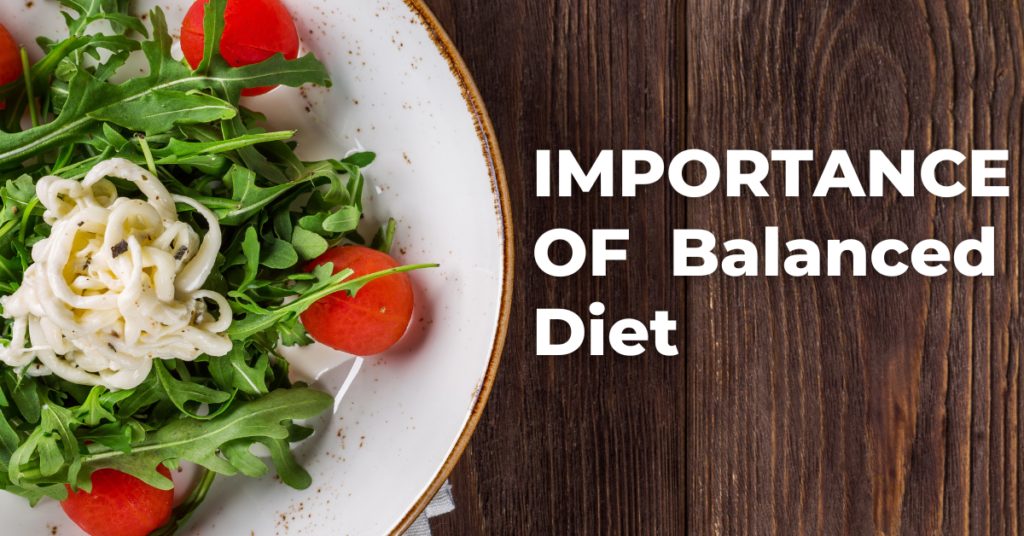Maintaining a balanced diet is fundamental to overall health and well-being. It’s not just about shedding excess weight; it’s about providing your body with the essential nutrients it needs to function optimally, prevent diseases, and feel your best. Here are several reasons why a balanced diet is crucial for maintaining health and well-being:

- Nutrient Intake: A balanced diet includes a variety of nutrients, such as vitamins, minerals, carbohydrates, protein, and fats, which are essential for various bodily functions. These nutrients support everything from energy production to immune system function.
- Energy Levels: Proper nutrition ensures a steady supply of energy. Carbohydrates are the body’s primary source of energy, and a balanced diet provides an adequate intake of carbohydrates to fuel your daily activities.
- Weight Management: A balanced diet helps control body weight. When you consume the right amount of calories and maintain a healthy balance of nutrients, you’re less likely to overeat and gain excess weight. Conversely, it can also prevent undernutrition or malnourishment.
- Disease Prevention: A balanced diet can reduce the risk of chronic diseases such as heart disease, diabetes, and certain types of cancer. A diet rich in fruits, vegetables, whole grains, and lean protein sources can promote heart health and lower the risk of obesity and type 2 diabetes.
- Digestive Health: Fiber-rich foods like fruits, vegetables, and whole grains aid in digestion and prevent digestive problems like constipation. They also support a healthy gut microbiome, which is linked to overall well-being.
- Mental Health: Diet plays a role in mental health. Nutrient-rich foods like fatty fish, nuts, and leafy greens contain components that can help manage stress, anxiety, and depression.
- Bone Health: A balanced diet rich in calcium and vitamin D supports strong and healthy bones, reducing the risk of osteoporosis and fractures.
- Skin Health: Nutrient-dense foods can contribute to healthy, glowing skin. Antioxidants in fruits and vegetables can help protect your skin from damage caused by free radicals.
- Longevity: A well-balanced diet is associated with increased longevity. It can extend your lifespan and reduce the risk of age-related diseases.
- Immune Function: Proper nutrition helps bolster the immune system. Key vitamins and minerals, such as vitamin C, vitamin D, and zinc, play vital roles in immune function.
To maintain a balanced diet, it’s essential to incorporate a wide variety of foods into your daily meals. Focus on whole, unprocessed foods, limit the intake of highly processed and sugary foods, and pay attention to portion sizes. Additionally, staying hydrated by drinking plenty of water is also a crucial aspect of maintaining health and well-being.
In conclusion, a balanced diet is a cornerstone of good health and overall well-being. It provides your body with the nutrients and energy it needs to function optimally, helps prevent diseases, and contributes to a long and healthy life. Making informed food choices and prioritizing a balanced diet is a crucial step in taking care of your physical and mental health.